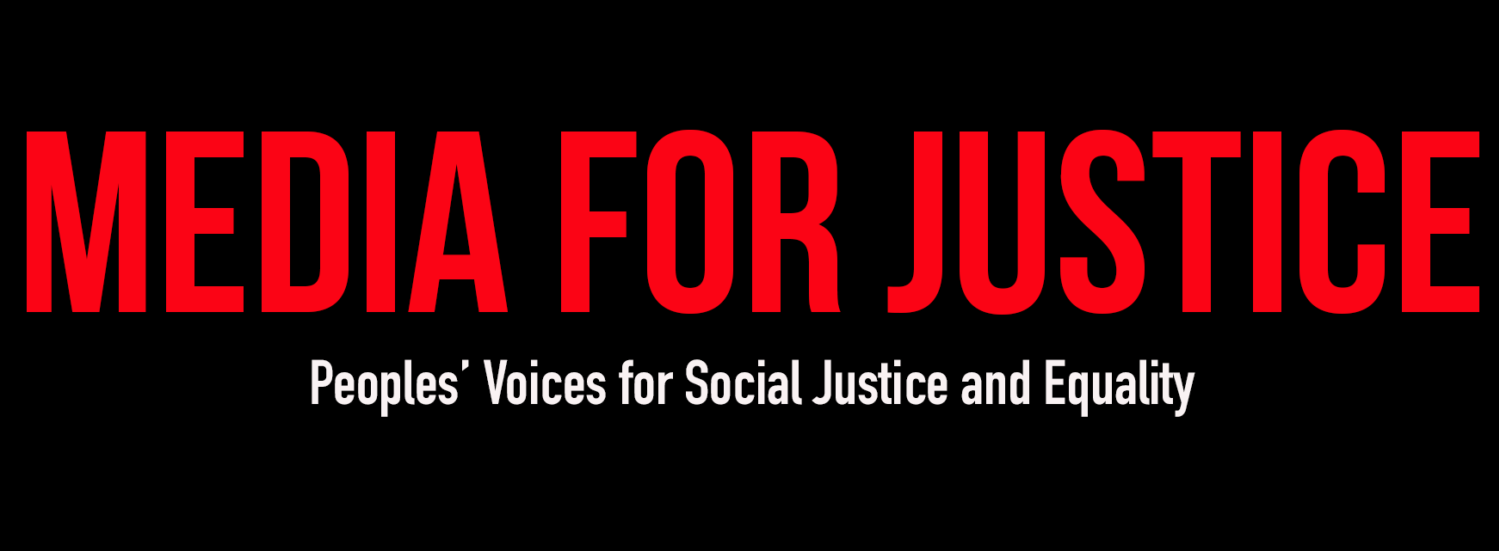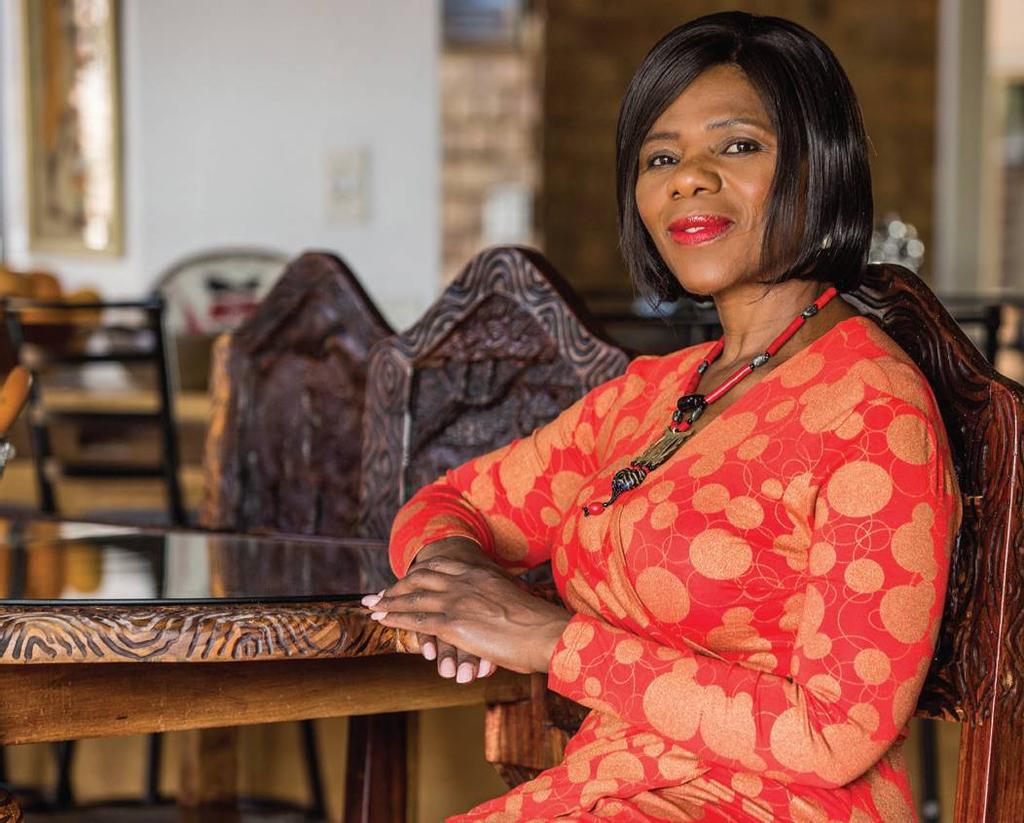By Gillian Schutte
Thuli Madonsela’s recent utterances on the sexual assault allegations against finance minister Enoch Godongwana, are it seems, both disingenuous and dangerous to the movement for justice for victims of gender-based-violence. Madonsela is the former public protector and current law trust chairperson in social justice at Stellenbosch University.
Astonishingly she chose the platform of an ‘expert dialogue on gender-based violence (GBV) in institutions of higher learning’ held at Stellenbosch University, to announce that: “the law needs to be allowed to run its course.” What she was referring to was the case laid with police by an Mpumalanga masseuse who accused Godongwana of sexually molesting her while she gave him a massage in his lodge room in the Kruger National Park.At the expert dialogue Madonsela further stated that the allegations were ‘saddening’ and said the nation should be careful of allegations versus what has been confirmed. Madonsela added that until Godongwana is charged by the NPA, it is not fair for the public to call for him to step aside.
The ‘saddening’ factor it would seem to me, is that a woman who holds public stature (with liberals worldwide) superficially framed the allegation as potentially false. The assumption embedded in her utterances is that the young masseuse ‘may’ be lying about the sexual assault. This is wholly problematic in a climate where male entitlement over women’s bodies is rife and victims of gender abuse are often not believed and thus never see justice.
Case summary documentation on this allegation as reported by the The Sunday Times , states that the 23-year-old masseuse relayed her traumatic encounter with Godongwana to the police, telling them that as an employee of Dee’s African Spa, she was booked to give Godongwana and his wife a massage. She said she ‘started with the wife’. After her massage his wife got dressed (in an adjoining room) then came through to say she was going to the shop. It was then, she reported, that Godongwana “touched her bumps” and directed her on “what to do on his body”. She stated he did not stop even when she had asked him to.Reports indicate that she relayed the assault to the manager at Dee’s African Spa, where she was employed.
According to these reports, the manager helped her lay a charge of sexual assault with the police. In the police case summary it is stated that ‘the finance minister continued to fondle the masseuse, despite her asking him to stop and then reportedly tipped the masseuse R400.00’, which some have speculated was hush money.
According to Sunday Times, Godongwana has denied these allegations, and has said that if the case goes to court he will be able to prove that his wife was with him in the room at the time of his massage.
Madonsela either seems to be unaware of the intersection between power and sexual assault – or, as some have speculated, she is pushing a ‘sell-out’ political agenda at the expense of victims of sexual assault. Certainly her commentary seems to be oblivious of the fact that the allegation fits snugly into the well-worn scenario in which sexual assault takes place most predictably where asymmetrical power dynamics dwell. Godongwana clearly occupies a powerful and dominant position in relation to the victim. Madonsela must surely be cognisant of the strength of conviction it takes for a young woman to lay a charge against a man who wields so much more power than herself, knowing that this will put her in danger. This is a terrifying prospect for a young woman who does not have the resources available to protect herself from power dynamics and it would be highly improbable that she would go out of her way to spread this lie.
It is victims who have to deal with the fall-out of being put in a position that threatens their agency. In this case the young masseuse was rendering a professional non-sexual therapeutic massage and it is she who now has to live with the feelings of emotional distress. It is she who is left with feelings of powerlessness as a woman as well as in relation to her safety in her profession. This creates the toxic concoction of depression, anxiety, hopelessness and post-traumatic stress disorder (PTSD). And beyond all of this it is she who is forced to carry the burden of proof.On top of this the masseuse has been all-but-scrutinised on an important public platform by an important woman, which can only add to her feelings of shame and suffering. This no doubt leaves her, like so many victims, vulnerable enough to possibly even doubt her own version of events through feeling blamed for her traumatic ordeal.
A source who wishes to remain anonymous, has revealed that Godongwana is allegedly seeking to silence the victim via monetary compensation. The source says that the victim, who lost her parents and has been brought up by her grandmother, is afraid and feels she will not see justice. The source added that coming from an economically poor background makes victims an obvious target for hush money and many perpetrators in power take advantage of vulnerable victims, knowing all too well that financial security is absent from their worlds. In many cases the option to accept money in place of justice is forced into a scenario which looks like it will be hushed up by powerful forces. The source said that society has to exert enough pressure to make sure the masseuse is not put through this coercive ordeal.
In feminist circles it is known that men in power often use bribery as the first call to silence a victim – and have all the means to intimidate the victim should she refuse the bribe. This has played itself out in so many scenarios where many men assert the power conferred on them by merely being men. Prominent men are also known to use their positions and the privileges of their power to either coerce, manipulate, and bully victims.
In my view it would have been more appropriate had Madonsela spoken up for ‘victims who are not believed’ at a dialogue for gender-based-violence, rather than appear to speak on-behalf of the alleged perpetrator.
In this case the masseuse is not only up against a powerful man, but also, some say, an entire faction of the ANC which seeks to protect one of their own. This they have done by insinuating in the press that the accusation is a ruse (set up by the RET presumably) to force Godongwana to step aside. Madonsela’s utterances in the alleged perpetrators favour seem to underscore this political propaganda. The escalation of attention and political weaponisation of her case can only escalate the victim’s PTSD and is a lot for a woman in her early twenties to deal with.
The masseuse’s case would be more reliant on more than support from a gender-based violence NGO as she now requires a lawyer to prove that she has told the truth. This is no small matter given that the evidence relies on Godongwana’s wife to corroborate a version of events that will have major negative ramifications on her own life. One can only hope there is hotel video footage, or eyewitnesses, that can verify what time she allegedly stepped out to the shops in relation to the time the alleged abuse took place.
Madonsela must reflect on the fact that she has quite possibly shown herself to be complicit in causing a victim of an alleged case of sexual violence further trauma by her veiled suggestion that this may be a fabrication. Sexual violence involves unwelcomed sexual contact of any type including the unwanted touching of genitals, boobs and ‘bumps.’ Suggestive words and actions imposed on a masseuse against her will falls into this category. This violence is encapsulated in the masseuse’s report and it is incumbent on the likes of Madonsela to believe the victim as a first call.
We know that perpetrators count on society’s inclination to blame the victim as a means to silence their victims and hold them in a perpetual state of fear. We also know that too often society tends to ignore or doubt sexual assault and violence against women. As a woman Madonsela could have used this opportunity to critique the ethos of a male-dominated society that encourages the abuse of and use of power over others, in particular disregarding the most vulnerable. Whether she meant to or not, her statement reinforces contemporary constructs of masculinity which most often ignore the ongoing subjugation of and violence against women. This can only encourage silence from other victims.
Most obviously, in overlooking the ‘power dynamic’ between Godongwane and the masseuse in her reported statements, Madonsela has circumvented the issue of sexual violence as an inevitable and often justified expression of power. She has also contributed to shifting public opinion to one that is more likely to doubt and blame the victim instead of the alleged perpetrator, and as long as victims are blamed, overtly or obliquely, sexual violence will persist.
It is ‘saddening’ that Madonsela, a woman, has wielded her power to seemingly manufacture public opinion about the traumatic ordeal of a young alleged victim, thereby further victimising her. A more salient statement for our times would have spoken about the untenable GBV statistics in South Africa and taken into account the fact that vulnerable women are most often not believed, especially when intersecting with power. What would have been far more noble and feminist of her would have been to call for Godongwane to step-down while a thorough forensic investigation into the matter is executed.
Instead she called on the nation to be sensitive to accusations against the alleged perpetrator.

